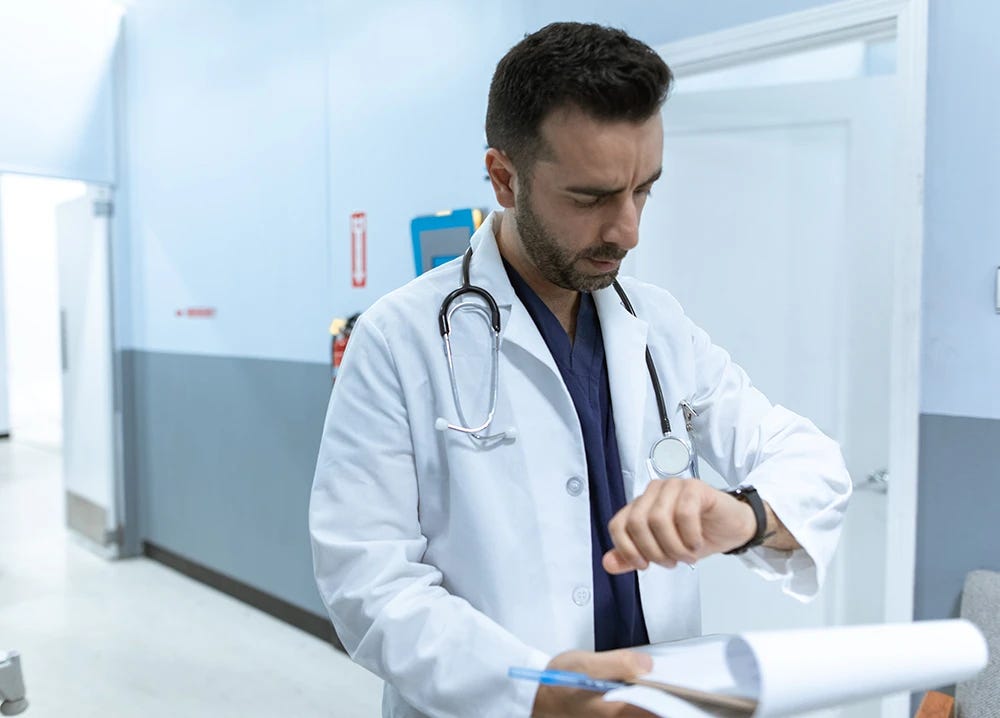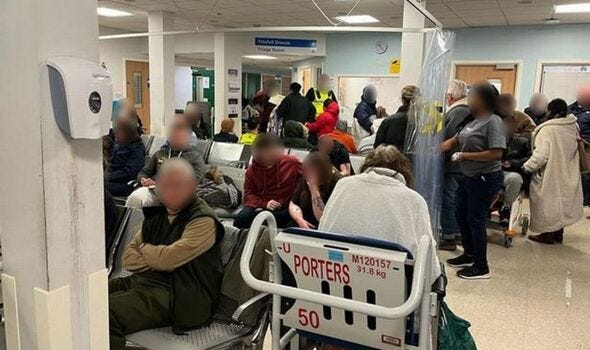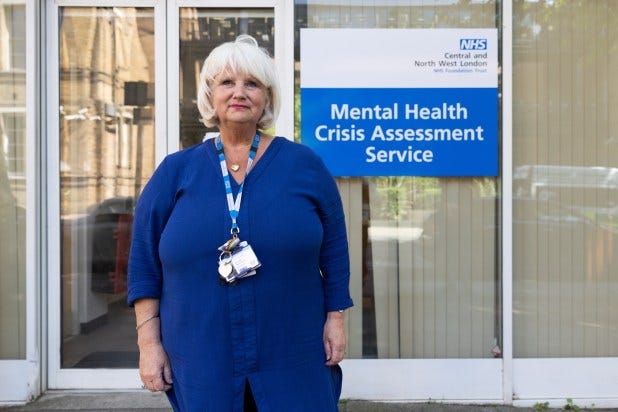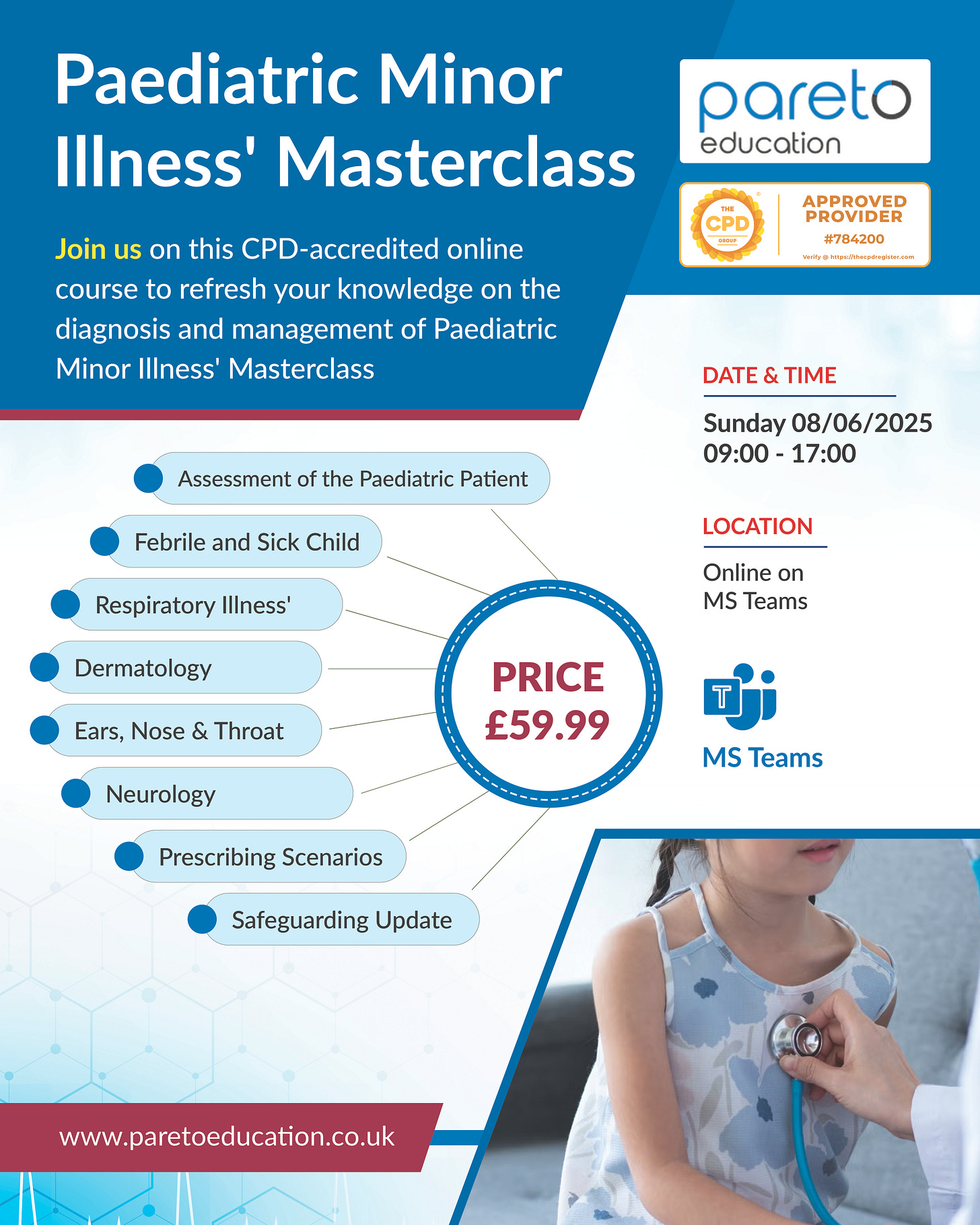Mental health A&E: Will It FIX The Problem?
Brush Up on Your Paediatric Skills With Our FULL DAY Masterclass
There aren’t a lot of things I can think of that really derail a morning or afternoon surgery. Managing emergencies can be tough, as they involve ringing SDEC/SAU/Paeds and discussing the case with a specialist. This takes time and can eat into your day. However, it’s usually quite straightforward once the referral has been accepted.
Mental health, however, leaves me with a lot to think about. I’m not always convinced that a patient is going to ring the CRISIS team. I’m also not convinced that the CRISIS team is going to help - especially as the service is incredibly stretched. Interestingly, the number of referrals to the CRISIS team has doubled in the last year. There have been many times where I’ve asked the patient to stay at the practice and call the CRISIS line in a separate room. I tend to think about these patients a lot—not only in terms of whether they’ll be taken care of, but also the potential repercussions for my career.
For a long time, the NHS has struggled to get around the huge surge in mental health presentations. I’ve found working in A&E to also be difficult when it comes to patients with psychiatric needs. In some departments, liaison psychiatry is so overwhelmed that these patients end up waiting for a long time - sometimes even absconding. It’s estimated that mental health patients wait twice as long in A&E compared to other patients. In other places, liaison psychiatry doesn’t exist out of hours. This means they end up contacting the CRISIS team—something they could have done at home.
A few days ago, there was an interesting development. The government announced the launch of Mental Health A&Es to help manage high-acuity conditions such as psychosis, mania, or suicidal ideation. Around £680 million has been allocated over 10 years, and these units will be staffed by mental health professionals to ensure good quality care.
Now, this is only a trial—which is often the norm with new services. If we think back to urgent care centres, a similar pilot was run initially. Currently, 4 out of the 10 sites are in London, with others located in Norfolk, Leeds, and Manchester. These units will be open 24 hours a day, with mental health nurses and psychiatrists present at all times. There will also be close links to safeguarding teams and social services. Much like A&E departments, these triage units can serve as a space for monitoring, drug management, or onward referral (both inpatient and outpatient).
So, how do you refer patients in? If you’re based in one of these areas, you can expect more information soon. Broadly speaking, patients will have the option to walk in if they feel vulnerable, or they can be referred by a clinician—or even via 111.
I’m sure you’re thinking what I’m thinking… are we opening the floodgates? If we look at A&E, where patients are sometimes seen for issues better managed in primary care, the same could happen with these units.
Of course, these services won’t be as widespread as standard A&Es. There will be a robust triage process in place to signpost some patients back to primary care or community services. Over time, patient education will help people understand the role of the service.
Some Final Thoughts…
Much of healthcare provision has focused on budgets and statistics. It’s easy to forget that human beings are not numbers on a large. Each mental health presentation whether a child or adult is someone who is suffering on a minute-by-minute basis. Any method to improve the access of such patients should be welcomed and supported. No doubt there will be some teething issues at the start but I sincerely hope this pilot proves successful.
Adults, Elderly Care and now PAEDS
At Pareto, we always try and provide the best quality education according to what clinicians need to enhance their practice. Having run several posts on our WhatsApp groups and social media paediatric CPD was something that was always top of every list.
The Pareto team are proud to bring you the Paediatric Minor Illness’ Masterclass. This course is designed with the modern clinician in mind with high quality content designed to teach and refresh the core principles of managing illness’ in perhaps the most vulnerable patient group. This course will cover a number of topics and you have the option of attending ONLINE or watching the RECORDING.
The key features include:
Key Features
✔ Live, Interactive Format – Ask questions, take part in polls, and join in discussions with expert speakers
✔ CPD Accredited – Receive a certificate of attendance
✔ Recorded Access Included – Watch the full day at your convenience after the event
✔ Relevant to Multiple Roles – Ideal for GPs, Advanced Nurse Practitioners, Paramedics, PAs, and other allied health professionals.
Join us on Sunday 8th June OR watch the RECORDING for a comprehensive and practical update in paediatric minor illness management. Perfect for qualified and trainee/student clinicians.
Website: www.paretoeducation.co.uk
Instagram: www.instagram.com/pareto_ed
Twitter: www.twitter.com/pareto_ed
Youtube: https://bit.ly/3DPm23c
Email: info@paretoeducation.co.uk








Would love to know your thoughts.
Paintopossibilities.substack.com
I, Professor and Psychotherapist, write about Humanizing our life experiences. Things that we have forgotten, been social conditioned to believe and even toxic thinking.
Work, home, education, relationships…tell me what's on your mind.